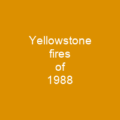Fire: A Double-Edged Sword in Human History
Imagine a world without fire—no warmth, no light, and certainly no cooking or heating. Fire is more than just a tool; it’s a fundamental part of human civilization, with its roots stretching back millions of years. How did this seemingly simple phenomenon shape our lives so profoundly?
The Basics of Fire
Fire is the rapid oxidation of a fuel in an exothermic chemical process, releasing heat, light, and reaction products. Flames are produced when fuel reaches its ignition point, consisting primarily of carbon dioxide, water vapor, oxygen, and nitrogen. But have you ever wondered how something as basic as fire can be so complex?
The Positive and Negative Impacts
Fire has been both a blessing and a curse for humanity. On one hand, it’s essential for cooking food, providing warmth, and even in rituals. But on the other, it poses significant hazards to life and property, causing atmospheric pollution and water contamination. Can you imagine a world without fire? Would we have advanced as much?
The Evolution of Fire Use
From early human rituals to modern-day internal combustion engines, the use of fire has evolved dramatically over time. The burning of vegetation releases nitrogen, leading to soil erosion and reduced fertility. How did humans manage to harness this powerful force for their benefit?
The Technological Advances in Fire Management
Varieties of technologies have been developed to prevent, manage, and extinguish fires. From the Neolithic Revolution where fire was used for landscape management to modern firefighting services using trained firefighters and various techniques such as water supply resources and aircraft surveillance, our understanding and control over fire have grown immensely. What would happen if we lost this knowledge?
The Role of Fire in Warfare
Fire has been used for centuries in warfare, from early thermal weapons to modern flamethrowers. The invention of gunpowder led to the development of flame-thrower weapons, and these were used extensively during World War I and II. Can you think of any other ways fire has influenced human conflict?
The Science Behind Fire
Burning fuel converts chemical energy into heat energy, with wood being used as fuel since prehistory. Nearly 80% of the world’s power comes from fossil fuels, which are used to heat water and produce steam that drives turbines. How does this process work exactly?
The Impact on Ecosystems
Fire science is a branch of physical science that includes fire behavior, dynamics, and combustion. It has applications in fire protection, fire investigation, and wildfire management. Every natural ecosystem has its own fire regime, creating a mosaic of habitat patches that allow a variety of species to exist. How does this impact the environment?
The Methods of Fire Suppression
Fires can be extinguished by removing any one of its elements: fuel source, oxidizer, or heat. Methods include turning off the gas supply, covering the flame, applying an inert gas, applying water, or applying a retardant chemical. What are some common methods used to suppress fires?
The Cultural Significance of Fire
In culture, fire has been an important element of human culture since the Lower Paleolithic, with evidence of fire worship dating back to prehistory. Fire was often viewed as a deity or symbolic of the divine, and its origin became a subject of mythology in ancient Greek culture. How does this cultural significance impact our understanding of history?
The Future of Fire
Fire remains a significant part of human culture, with uses including celebrations, protests, and management of forest fires in South East Asia. Haaretz. Pyne, Stephen J. How will fire continue to shape our future?

As we continue to explore the complexities of fire, one thing is clear: it’s a force that has shaped human history and will undoubtedly continue to do so. From its role in daily life to its impact on ecosystems and culture, fire remains an integral part of our world. How can we ensure that this powerful element continues to serve us positively?
You want to know more about Fire?
This page is based on the article Fire published in Wikipedia (retrieved on March 14, 2025) and was automatically summarized using artificial intelligence.





